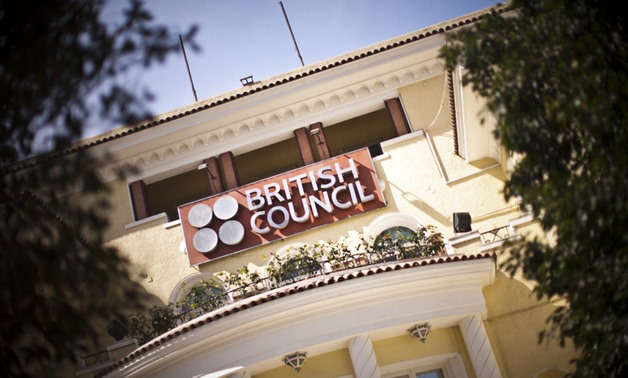
British council in Egypt - CC
The British Council celebrated 80 years of presence in Egypt in November, and it has certainly come a long way since it was established during the global turmoil of World War II. The British Council in Egypt is quite unique, being the first ever of its kind outside of the UK. Queen Elizabeth II sent a short speech to Cairo to be read by Ambassador Geoffrey Adams last month at the Council’s headquarters in Agouza.
“Over the years, the British Council’s work in Egypt to encourage the sharing of knowledge and ideas has created opportunities for the people of both countries and built our mutual understanding. The ties between our two countries are important, and I welcome the continued contribution of the British Council in Egypt.”
The ambassador—who has been in Egypt for three months and who is the son of Sir Philip Adams, the British ambassador to Cairo in 1973—emphasized his pride the 80th anniversary of the British Council coincides with having its first female director, Elizabeth White. “[Egypt] is one of the best places to do this kind of work.
The young people we work with, they are so amazing. The potential, the interest, the curiosity, the trust, the initiative of these young people is just blinding,” White, who has been in her new position for about three months, told Egypt Today. “Being appointed the new director of the British Council in Egypt during such a momentous year has been marvelous. . . . It gives a real sense of purpose to see how generations of Egyptians have taken up the opportunities we offer in the arts, education, science and sports,” White said in her speech.
She told Egypt Today that at this time, the British Council wants to continue to focus on education and developing the lives of young people. Currently, the British Council runs the National Teacher Training Program that expects to train 37,000 teachers by 2020, as well as the Newton Mosharafa program, which develops the capacity of academics.
The scientific program is funded equally by the Egyptian and British governments with a total of £50 million, and it sponsors postgraduate studies and research programs for Egyptians at UK universities. Recently, the program helped Egyptians discover an early diagnosis method for Hepatitis C, and the national campaign against the virus has thus far proven to be immensely successful.
The British Council also runs the coaching program “Premier Skills,” aimed to develop children on a social and educational level, in communities across Egypt, including those in Upper Egypt. In 2017, over 60,000 children were part of the program.
In mid-November, White flew to Luxor to attend the closing ceremony of the British Council’s ‘1000 Girls, 1000 Dreams’ football partnership with the Ministry of Youth and Sport in Luxor. It is hoped that the program will leave Egyptian female coaches who will continue to train young girls. Back in Cairo she attended a concert by independent British singer Nadine Shah at el-Sawy Cultural Wheel, along with Sir Adams, on the last day of the anniversary celebration.
Shah, whose album Holiday Destination was nominated for the 2018 Mercury Award, said female Muslim second-generation immigrants like herself were hardly ever present in the music scene in the UK. She is super excited to be setting an example for her fellow Muslim artists to pick up their guitars and know they can be respectable while leading a career in music. She hopes the first generation will also learn that such a career can be profitable and allows musicians to see the world. “There’s so many artists from the UK that should be playing here. Lots of people have one idea in their head, they think about what happened in 2011, they think about safety. I mean, London isn’t technically a very safe city,” Shah told Egypt Today.
“It’s perfectly safe to come here. So, it’s so important that we have institution like the British Council present encouraging artists to come and to play and to see these places. It’s a really beautiful, beautiful city,” the young artist said, adding that the Nile represented the best backstage area she ever played at.
The artist, who is of Pakistani heritage, defines her music as “alternative,” with Holiday Destination, which predominantly was about the refugee crisis, influenced by different genres like Afrobeat and bands such as the US rock bank Talking Heads, and scales from the east using, in particular, the saxophone. Here in Egypt she expressed her strong admiration of Egyptian iconic singer Umm Kalthum, emphasizing there is a “real thirst” for eastern music in the UK. “Sponsors and financers should support Egyptian artists to play in the UK, where audiences will spread the message via word of mouth and pictures and videos on social media in the alternative music scene and beyond.”

Comments
Leave a Comment